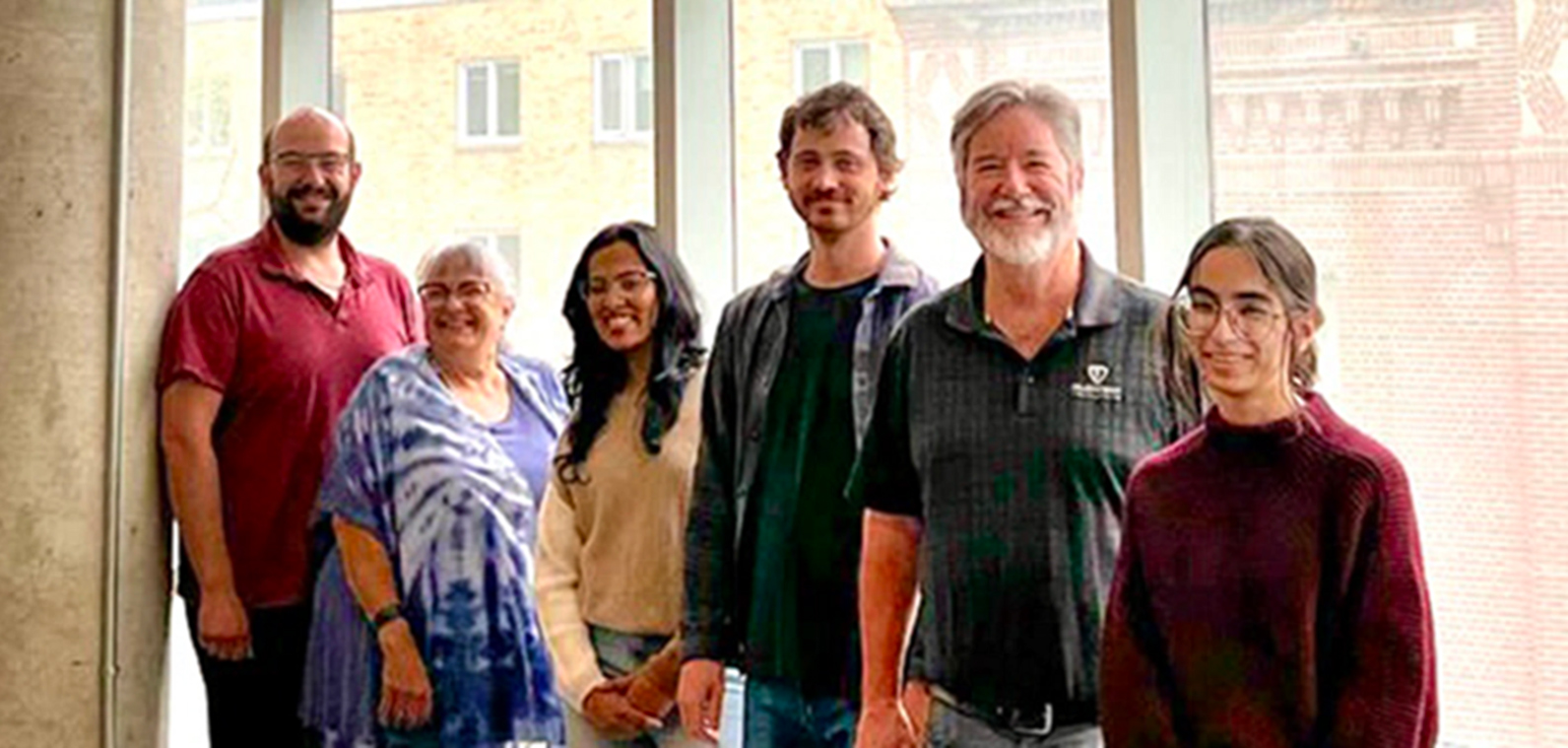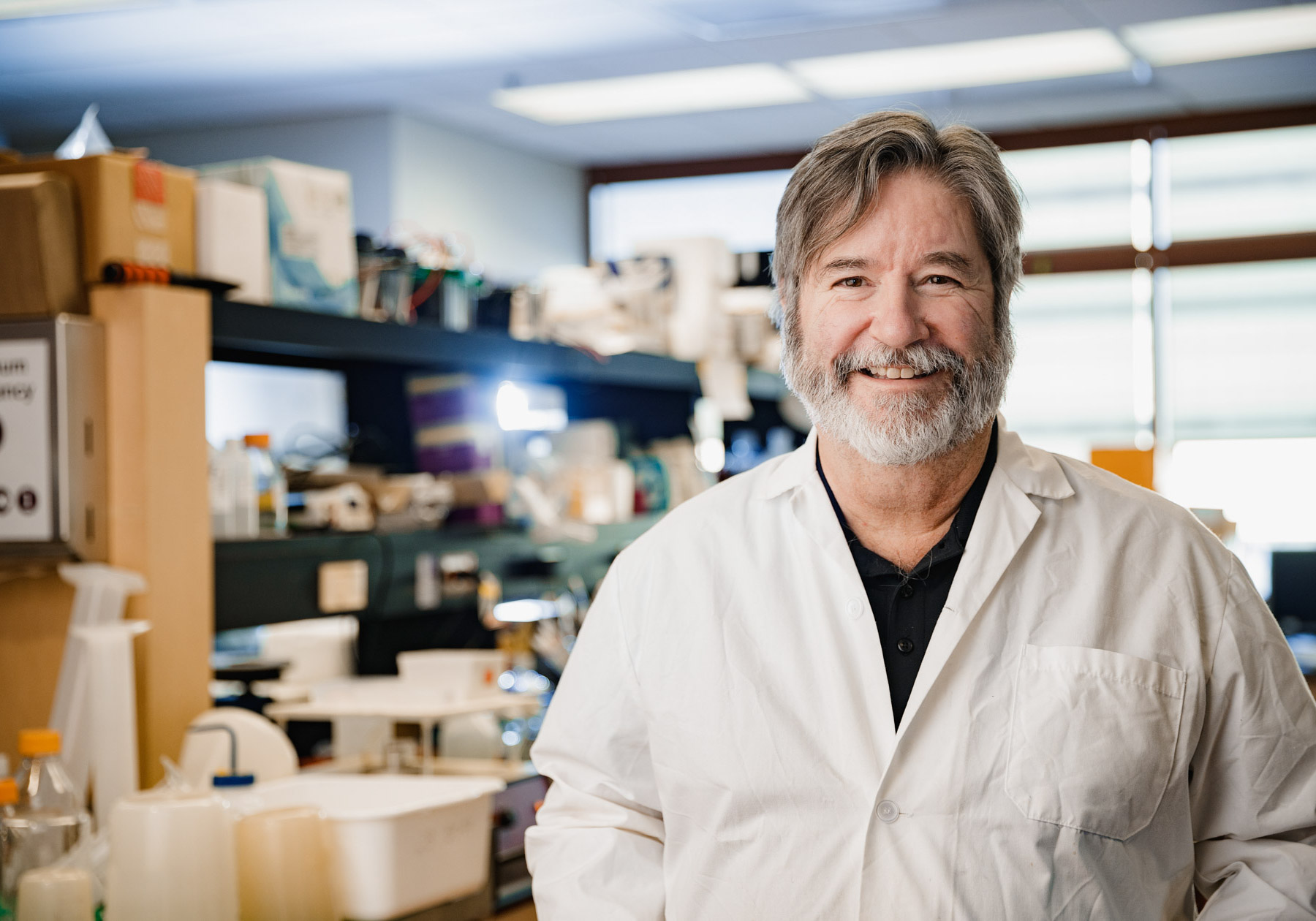Research Discipline(s): Basic, Translational
Primary Title: Professor, Dept of Biochemistry & Medical Genetics, Rady Faculty of Health Sciences, University of Manitoba
Additional Titles & Affiliations: Senior Investigator, CCMR
RESEARCH TOPICS
Rare Pediatric Cancers, Leukemia, Lymphoma, Sarcoma
In my research I try to continuously ground my expertise in early development, genetics and rare pediatric diseases towards a better understanding of the molecular cause of that disease. In this way, I hope the impact of my research will lead to better avenues of prevention and/or early diagnosis for the affected children and their families.
Research Summary
The focus of my research program is on developing humanized mouse models of rare pediatric cancers including those resulting in childhood leukemia, lymphoma, Ewing sarcoma, ataxia telangiectasia and related late onset diseases such as ALS. Often rare pediatric cancers are associated with rare genetic diseases with a known genetic variant or mutation. Our approach is to analyze developmental defects in mice that are either deficient for a specific gene or are designed to contain the same variant of the gene associated with the childhood cancer. This allows us to functionally analyse the gene in the context of whole organism and across the full spectrum of tumor development. Understanding the normal function of a gene in early development is a powerful approach to understanding how mutations or rare variants in the gene contributes to the development of the cancer. Often it allows us to identify an actual molecular mechanism that drives the cancer, which in turn can identify possible new targets for therapy. Interestingly, the mouse models we have made can then actually be used to pre-clinically evaluate the effectiveness of new therapeutic interventions. My research also focusses on disease and cancer genomics in human patient cohorts. Here we try to identify genetic variants that associate with disease risk and resilience – very small genetic changes that may enhance or protect an individual from developing a specific cancer. Identifying genetic variants in human patients can not only lead to a better molecular understanding of the associated cancer, but also has the potential to be used diagnostically and to make better informed treatment decisions in precision medicine.
Goals
My overarching research goal is to use recently identified rare genetic disease variants to better understand the molecular mechanisms underlying the disease or disorder. We will focus our efforts on creating and studying genetic mouse models of rare pediatric cancers to link the molecular mechanisms directly to the phenotypic (clinical) outcomes of the resulting disease or cancer. We will compliment this with genome wide genetic, epigenetic and gene expression analysis in both our mouse models and in human patient cohorts. The ultimate goal is to identify specific genetic variants that drive the disease or cancer, and that can be used to identify new therapeutic targets and new potential biomarkers for diagnosis. The clinical impact will hopefully translate into the application of new disease treatments or prevention approaches and into evidence-based decision making in diagnosis and the implementation of precision medicine.
Research Biography
Dr Geoff Hicks has been a member of CancerCare Manitoba Research Institute for most of his scientific career --- beginning in 1985 with his PhD training in Dr Michael Mowat’s lab. His thesis work included some of the first evidence that the cancer gene “Trp53” is actually a tumor suppressor gene. In 1991 Hicks started his post doctoral work at MIT in Cambridge Massachusetts under the mentorship of Dr Earl Ruley. There he developed a genome wide tool to identify new tumor suppressor genes, Tagged Sequence Mutagenesis that has been described as a major paradigm shift in mammalian functional genomics. The experimental concept of using a sequence-based screen was fundamentally different from previous approaches and today is the basis of major international initiatives that followed. Dr. Hicks was recruited back to CCMR as a Principal Investigator. As a CIHR Canada Research Chair in Functional Genomics, he quickly became recognized internationally for his expertise in the genetic modeling of human disease and high throughput functional genomics. As the Director of the Mammalian Functional Genomics Centre, located at the CCMR, he has led several large-scale international projects including NorCOMM, the Canadian component of The International Knockout Mouse Project from Genome Canada and other partners to create knockout mice lines for each of the approximately 20,000 mouse genes. In 2008, Dr. Hicks became the inaugural Director of the Regenerative Medicine Program in the University of Manitoba’s College of Medicine. The 8 Principal Investigators of the program focus on stem cell-based applications for the treatment of human disease, including cardiovascular disease, cancer, and spinal cord injury repair. Dr. Hicks is currently also a PI of the Kid’s Brain Health Network National Center of Excellence, Scientific Co-Chair of CIHR’s Rare Disease Models & Mechanisms Network, an Institute Advisory Board member of the CIHR Institute of Genetics and a past member of the Medical Review Panel, Gairdner International Awards.
Achievements
-
No items found
-
Featured Publications
- See publications list
Publications List
Hicks Lab

Dr Geoff Hicks is the inaugural Director of Regenerative Medicine Program and Professor of Biochemistry & Medical Genetics at the University of Manitoba. He recognized internationally for his expertise in the genetic modeling of human disease and functional genomics. Dr. Hicks’ research program focuses on developing humanized mouse models of rare genetic diseases including those resulting in childhood leukemia, sarcoma and ataxia telangiectasia (AT) and neuro-developmental diseases such as ALS and FASD. One of Hicks’ current directions focuses on a new pre-clinical mouse model of AT to test if new therapeutic drugs are able to reduce or prevent cancer and ataxia.
Our Team

Geoff Hicks, PhD
Principal Investigator

Joanna Joe
Summer Student

Bresham Omar Malik
Summer Student

Leo McKay
PhD Student

Dr Berardino Petrelli, DMD
PhD Student

Molly Pind
Research Associate

